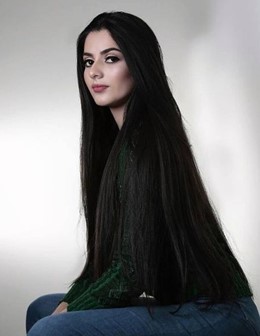
Kaur
A Short Story
By Maryanne Peters
As a young Sikh man, it was my tradition not to cut my hair. It was a tradition that I kept even after I had been accepted to study nursing.
My parents had expected me to become a doctor, but I struggled in college. But it took a spell in hospital to dispel my ambitions. I had a growth in my groin which required surgery and ended up with me losing one testicle. What I remember about my time in hospital was how awful the physicians were and how great the nurses were. I felt that as a nurse I could do more good. Maybe I could not save lives in the same way, but I would be spared life and death decisions. I felt that I could do more as a nurse.
My religion supports doing good for fellow human beings. I was not just a traditionalist; I was a believer. I wanted to make a mark in the world by helping people. Nursing is a noble profession in that way.
I was told that my late or inhibited sexual development was not related to the absence of a testicle, but I am not so sure. The fact that my beard would not develop was a problem for a Sikh man. We are marked by our turbans and our beards. My beard was non-existent, and my turban never looked right because it covered too much hair. We use oil sometimes to reduce the volume, but it never worked for me.
My mother always said that appearance is unimportant, because the one God that we worship is without form (or gender) and so it the whole scheme of things, it is of no consequence. Still, I was teased in our Sikh community. I was almost happy to get some distance away to the nursing school where I had been accepted.
I was not the only man who was in our intake that year, but more than 80% of the students were women. We did not have segregated accommodation, so we mingled. I suppose I expected to be involved with the other guys, but it is not the way it worked out. I suppose that in a Sikh community in America I was not involved in the usual American sports and other pursuits.
Don’t get me wrong – everybody was friendly and kind. Nursing usually attracts the right kind of people. I was not teased for being different. In fact I was sought out because of it. It was just that there were more girls, and more around my room, and I just fell in with them.
There are some aspects of the Sikh religion that might appear effeminate. Apart from the long hair (Kesh) and the turban we wear a bangle (Kara) and we have underwear that look like bloomers (Kachhera), and even the Kirpan or sword that men wear, is reduced in modern times to a simple pendant on a fine chain. Like a crucifix.
A beard was needed, but in my case, it was largely absent.
I had a study group of the four rooms at our end of the accommodation block. There was me and three girls: Ruby, Joanne and Nina. When we were in Ruby’s room discussing the days lectures, Ruby asked me what was under my turban. At the urging of all of them I unwrapped my turban so that they could see. I pulled out the comb holding it is place, and my hair tumbled out.
“Oh my God it is so long,” said Joanne. “And what is that hair ornament?”
“That is a traditional Kangha,” I explained. “Not an ornament, although this one is carved and embellished. It is another of our dress code items”. We call them the 5 Ks.
“Your hair is so beautiful,” said Nina. “Would you let me comb it?”
C had her own very nice hair, but she often braided or styled to hair of her friends. It did not seem to me to be something that I could say no to.
“Do you ever go out with your hair uncovered?” Ruby asked.
“No,” I said. “I should be covered, but if it wasn’t how could I explain it. People would stare.”
“People already stare at the turban,” said Joanne. “Don’t you sometimes wish that you could just walk around incognito, like a regular person? I don’t men that you are not a regular person, but just not … you know?”
“I know,” I said. “I am proud to be Sikh. It is a religion of inclusion and of piece. But yes, sometimes I wish that we did not have to draw attention to ourselves as we do in American society.”
“With your hair down like that you could pass as a woman,” said Ruby.
I laughed out loud, but I looked around to see that I was the only one.
“I couldn’t do that,” I said.
“Does your religion look down on women, then,” said Nina with a scowl.
“Oh no, the total opposite,” I explained. Women are equal. One of our major historical leaders, Guru Amardas put an end to veils on Muslim women and the awful Hindu tradition of sati – where a Hindu widow is expected to throw herself onto her husband’s funeral pyre”.
“How awful,” said Ruby. “But I am sure it is a thing of the past.”
“Well, there was at least one last year,” I said. “That we know of.”
They all gasped. I guess that with my family coming from India I understand that it is really two countries: A modern democracy with a highly educated urban population big in the tech industry, and primitive rural communities of small farms and villages steeped in superstition and tradition.
“We should do something,” said Ruby. “As women we cannot sit by.”
It never occurred to me that I had been included as one of four women. Not then anyway.
“It can happen, but you were right: Not these days,” I said.
But then the unthinkable happened. There was an incident of sati in India a few days later and it was videoed using a cell phone and went viral on the internet. The State Department was asked to make a statement. They called it “The internal affairs of a foreign sovereign nation”
“We have to do something,” said Joanne. “We should march on the Government Building protesting against it. We need to stand up for Indian women.”
For some reason they were all looking at me.
“We can’t protest as three white women. We need an Indian woman with us. Would you Harbin?” asked Ruby.
“Yes, yes,” squealed Nina. “At last a chance to let your hair down.”
“You could go as a man,” said Joanne. “But this is about the abuse of women. You really need to be presenting yourself as a woman.”
“We just need to get rid of the that ugly sparse fuzz and tidy up those eyebrows, but with that hair of yours you will be every inch a woman.”
I looked around at my three closest friends and colleagues, all looking at me with high expectations. If you had been there in my position, you could not have refused them.
It was for a good cause. I chose the name Jaya. It means victory. We wanted to make a statement. Ruby made up some placards. Joanne attended to my face, pulling out what beard there was, despite my religious convictions. Nina attended to my hair, washing it with volumizing shampoo, blow-drying it and brushing it to a sheen.
“You can wear tight jeans. I have a pair that will fit,” said Nina “And just a plaid shirt maybe with a bra underneath. Let that hair fall down the back. That’s all you need to appear female.”
“Maybe just a little lipstick and eye liner,” suggested Joanne.
“And a few quick lessons on how to not to betray yourself as male,” said Ruby.
We went downtown and presented our four-woman protest. Strangers who approached were keen to talk to me, as the only Indian. I was a little uncertain at first due to my voice, and the others jumped in. But as time went on, I found my woman voice and was able to talk about the poor treatment of women in the country of my parents’ birth.
Then the television crew arrived, and they wanted to talk to me. I put them on to Ruby and Joanne, but they insisted on just a few words from me. They were the words that made the news.
My biggest concern was that my parents or somebody else from back home would see me on the news dressed as a woman. That is why I wanted to avoid being on screen. But the genie was out of the bottle. It could not be put back in. I would just have to wait for the thunderstorm.
But that came not from my parents, but from the TV studio. They tracked us down and asked for two of us to go into the studio for a televised discussion of women’s issues. Ruby said it should be her and me.
“I can’t do that,” I protested. “I am not a woman. This has gone too far.”
“This is an important issue,” Ruby said. “We are in this together. You are one of us.” If that last words were a question, then they were an accusation. I had to stand with the people who had become my closest friends. I nodded. My long soft hair fell around my face.
They insisted on a bit more makeup for the show, but in any event, makeup for all of us was redone before we went on air. It did not escape my attention that I looked quite beautiful appearing as a woman, especially with my hair out. It did not matter what I was wearing. Even an old sweater and a pair of jeans.

Again the questions came to me.
“I am probably the wrong person to ask,” I said. “I am a Sikh. Sati is a Hindu tradition. Sikhism honors women in a special way. When we call a woman Kaur we are saying the we understand that all people come from a woman. That makes women special – a higher person. This Sati tradition makes them simply a piece of property of a man, simply to be thrown on the fire as useless when he has died. It is an awful thing.”
Joanne was watching from the Director’s box. She said that this man said more than once: “Keep the camera on the dark girl with the long hair. She looks so good on screen.” When I watched the recording afterwards, I had to agree. But I was still concerned that my parents or other people I knew might see me and recognize me, and that I would be revealed as only pretending to be a woman.
But is that what I was doing? We went out for a drink after the filming of the show and I was there as Jaya, one of four women, all studying nursing at the nearby hospital. That is what we told all the boys who came over to talk to us. It seemed completely true.
The following morning I looked at the fabric of my turban and I realized that I did not want to put it on. When I looked in the mirror it seemed to me that the person I was did not need to put on the turban of a man. Some Sikh women where another kind of turban but it is not required in the same way – it is an expression of piety that I have never understood. I had now lost my beard, but a Sikh woman does not need that. Many just wear the Khanda, a symbol of the faith, on a chain around their neck. I had one that my mother had given me, so I put it on, and I brushed my hair and went to my lectures.
My friends knew when they saw me that something was different. Nina said that I should try wearing something brighter. It was not that I was wearing women’s clothes – not then anyway – or any makeup, it was just that I did not look like a man.
It was the hair, I suppose. As Sikhs we are told that we must not cut our hair, but in my case, I had always had too much. Now it was out, and I was proud of it. Not because it was an expression of my faith but because it was an expression of me.
Of course, these days as I practice nursing I have to put it up. I wear it in a large bun on top of my head. It is very long because I never cut it. I am a Sikh., you see. And now that I have breasts to fill the cups of my bra and nothing much to fill my panties, I am Kaur.

The End
© Maryanne Peters 2020
A patron, Yolower Yolower said: “Hi, I love your work. I would like to see stories like "Sikh". Maybe a redo of that story or with another sikh boy with long hair adjusting in western society with female friends.”


Comments
I am not Sikh
But I have studied Sikhism as a part of my world religion program and from what I know I am very impressed with the level of authenticity throughout the story.
Sophisticated
The voice in this story is entirely different than your other stories.
You go so far as to place the verb before the noun in your attributions which I haven't seen you do -- that often.
Had I not read your hundreds of other stories I would have thought English to be your second language.
Jill
Angela Rasch (Jill M I)
Really Convincing
This was a wonderful wee story. I had a friend who was Sikh, and she spoke just like the girl in your wee story, it could have been her writing.
That aside, this was such a lovely wee story of friendship and support. I loved it. Thank you.
The Sweetest Hours
That ere I spent
Were spent dressed
as a Lassie, Oh